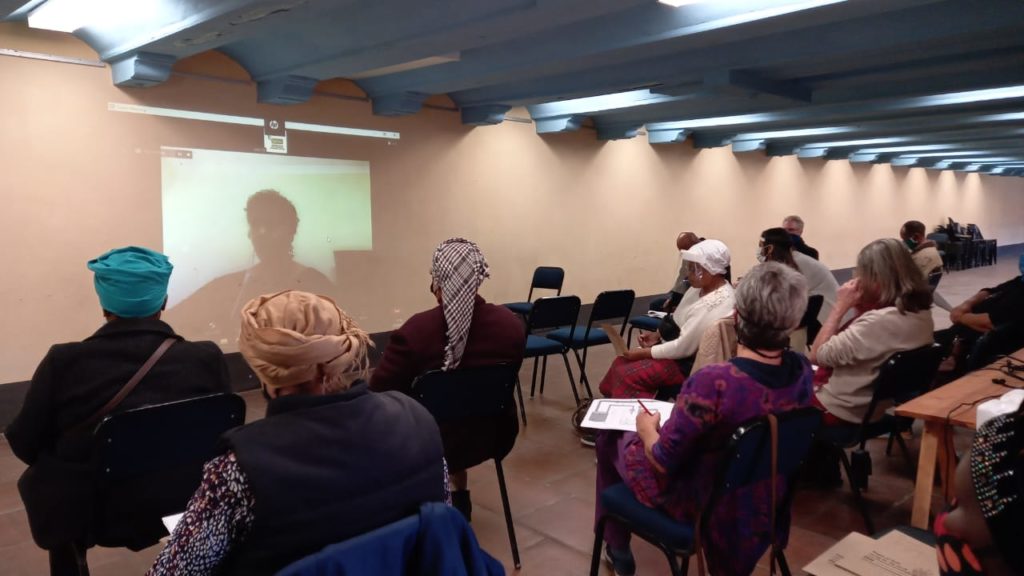Cape Town faith leaders meet at the Castle and learn about biodigesters
- Published:
A homemade biodigester can save citizens up to R500 a month in electricity costs.
Lydia Petersen achieved some two hours a day of free cooking time when she created a biodigester in her backyard in Mitchell’s Plain.
Now, Lydia is determined to share her knowledge and experience with other community members because she says there is no need for families to suffer from exorbitant electricity tariffs which just keep rising.
Lydia was addressing a group of faith leaders from the Greater Cape Town area who gathered at the Castle of Good Hope to hear her speak.

The leaders are all affiliated with the Cape Flats Interfaith Group, and the gathering was hosted by SAFCEI.
After opening prayers, Damian Taylor of Plant the Seed told the group about his NPO which encourages schools to participate in a recycling programme based on education, participation and economic justice. Educating children to have pride in their environment and to spend time collecting litter for recycling had the added benefit of some income for the schools. Damian’s presentation was very well received and the group wanted to know a lot more – many promised to connect with Damian and introduce his project into schools in their areas.
Then it was Lydia’s turn to address the already-inspired gathering of some 17 women and 8 men.
Lydia, who presented via zoom as she has recently moved to Pretoria, had prepared a handout of a diagram, a list of resources required and some basic instructions. The group was fascinated as they followed her through the building of her biodigester. Here are some things we learned:
- The biodigester is an anaerobic process that produces methane, and this is the gas that powers the cooking process.
- The cost of the biodigester can be recovered in electricity savings within 2 months.
- Many processes require cow dung to help facilitate the process of breaking down the waste in the biodigester, but Lydia has never used cow dung and her results are extraordinary.
- Every one of the 25 people in the room expressed a desire to learn more, and to participate in a practical, in-person session to become more familiar with the process and confident to build a biodigester themselves.
Finally, the group discussed the document Cape Flats Declaration which they adopted at a meeting on 25 August 2019. Although the document does not specifically mention environment, the conversation led by Imam Salieg Isaacs and Nic Paton concluded that environmental justice is intrinsically included in the intention of the Declaration as eco advocacy benefits humans and uplifts the human condition.
Imam Salieg blessed our gathering with a closing prayer, after which everyone enjoyed a delicious lunch sponsored by SAFCEI. The Imam was fasting but we gifted him with a contribution to take home for that evening’s Iftar.
Rev Berry Behr
Who we are

SAFCEI (Southern African Faith Communities’ Environment Institute) is a multi-faith organisation committed to supporting faith leaders and their communities in Southern Africa to increase awareness, understanding and action on eco-justice, sustainable living and climate change.
Featured Articles
-

South Africa: Who Ends Up Paying If DMRE Cooks the Price of Nuclear Power?
-

South Africa’s nuclear energy expansion plans continue to draw criticism, environmental NGOs chew over legal challenge
-

Earthlife Africa and SAFCEI respond to latest unsettling nuclear news regarding the ministerial determination
-

Open Wing Alliance Africa (Virtual) Summit 2023
-

The Green Connection and SAFCEI respond to energy minister's divisive and deflecting comments
-

Job Vacancy: FLEAT Coordinator







